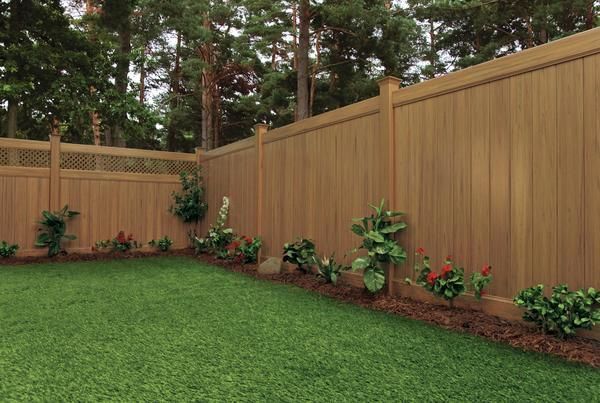Comparing Composite to Vinyl Fencing
Not too long ago, homeowners had limited options to choose from when building fences for their homes—metal or wood. Nowadays, vinyl and composite fences are also available and offer many benefits. These types of fences are stronger and more durable and they require little to no maintenance. Each has its own advantages and disadvantages to consider before making a final decision. Below is a brief comparison of composite and vinyl fencing.
Materials
Vinyl fencing is made from PVC (polyvinyl chloride); high-quality ones contain virgin vinyl or high-quality, recycled scraps. Low quality ones are made from weak plastic scraps. This type of fencing also has a double layer of titanium which protects it from the damaging effect of sun rays. The railings and posts are hollow, making them lightweight and easy to work with.

Composite fences are made from a combination of plastics called resins and wood fibers. Most of these fences are solid, although you can find some large fence posts that are hollow. High-quality composite fences closely resemble real wood fences and give a classic appearance.
Longevity
In general, both composite and vinyl fencing will last longer than wood or metal; however, in extremely cold weather, vinyl fences can crack or shatter if they are hit. Extreme weather conditions will cause wear and tear on vinyl fences and may require you to replace your fence more often.
On the other hand, composite fences can withstand extreme weather conditions because they contain natural wood fibers. If the fence is made with high-quality material, it can resist peeling, pests, warping, and rotting. Some composite fences have lasted for more than 25 years.
Environmental Considerations
Vinyl fences are not environmentally-friendly. This is because the chemical used (vinyl chloride monomer – a carcinogen) may bleed out while it is being manufactured, releasing dioxins into the soil, which are very harmful to plants and animals.
Composite fences are a more eco-friendly option because most manufacturers use non-toxic types of plastic; however, it is possible that a manufacturer may use PVC and polystyrene (a carcinogen), which are not environmentally-friendly. The safest options are those that use high-density polyethylene and low-density polyethylene.
Installation
Both composite and vinyl fencing follow the same installation procedure. Each will come with the necessary installation tools, accessories, and manufacturer’s instructions which should be followed. Elite Fencing in Columbus, OH provides high quality fences at affordable prices. Their highly skilled team will install your fence or offer expert advice if you decide to do it on your own.

